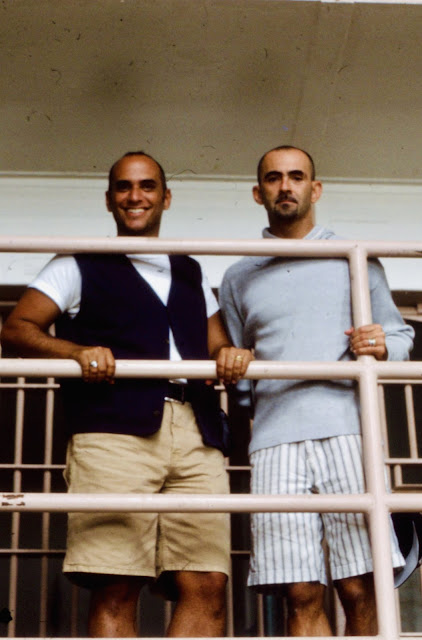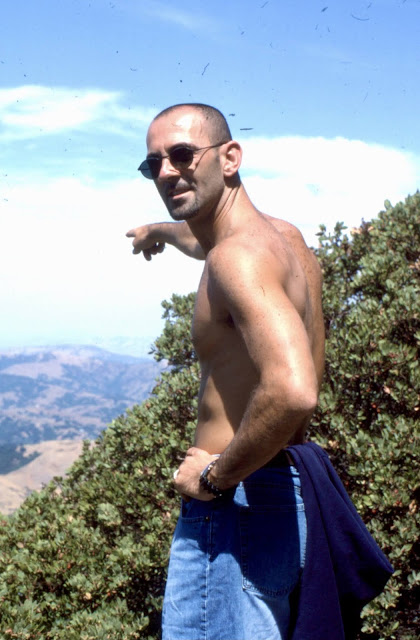"And why shouldn't there be a gay thriller?" I asked myself, recognizing that gay fiction's move into genre suggests that there's more to it than the coming-out stories most men of my generation told.
If only P.J. Vernon's plotting were as good as his descriptions of the demimonde! Oliver's first visit to a sauna sets things in motion:
. . . Men stand and sit and linger in stages of undress, manspreading on changing benches, tiny towels intentionally parted.
None of them are particularly attractive--or if they are, the darkness is a mask--but that's not the point is it? What's important is that I've left my life behind. I've abandoned its norms and its mores for Haus. Where we all play half-hidden in shadow and nakedness and thirsty eyes aren't transgressive.
MeatLockr, a well-named hook-up app yields this nugget about disembodied cruising:
I search for a meaty thread. One where we'd talked at length . . . Admitted to long-buried fantasies that only anonymity can surface. Fetishes that persist deep beneath the surface like fungus in damp soil.
Oliver's recovery from an addiction to pills ring true, too, as does the tenuousness both of his recovery and his relationship with a controlling trauma surgeon which forms the fairly realistic backbone of the book which alternates their very different perspectives.
"If Nathan kicks me out, I have nowhere to go"--I wipe my face, teeth chattering--"and nowhere is exactly where recovery goes to die."
It doesn't take a rocket scientist to figure out who the real villain is despite the red herring of an ex-boyfriend. Maybe I'm a snob but the ludicrous denouement of Bath Haus--complete with a Mommie Dearest cameo--seems like a waste of Vernon's talent, a shot at commercial success that likely missed, despite a favorable review in the New York Times.

















































































































